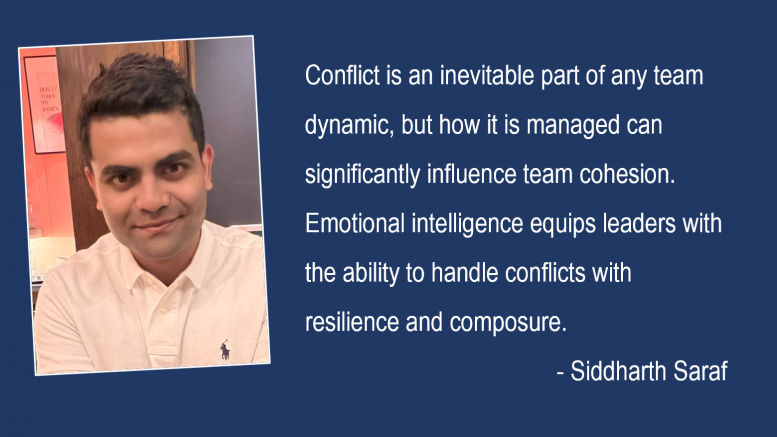In today’s fast-paced business environment, the effectiveness of a team is often a decisive factor in an organisation’s success. Having navigated the challenges of building a brand from the ground up, we have come to recognise the pivotal role that emotional intelligence (EI) plays in fostering a cohesive and high-performing team. As co-founders, we believe that emotional intelligence is not just a soft skill, but a fundamental pillar in building a more effective and harmonious work environment. Emotional intelligence, in essence, is the ability to recognise, understand, and manage both one’s own emotions and the emotions of others. This includes essential skills such as self-awareness, self-regulation, empathy, and social adeptness—skills that are crucial in enhancing interpersonal relationships and, ultimately, team dynamics.
One of the most significant impacts of emotional intelligence in a team setting is its ability to align vision and values across the team. As leaders, we have found that articulating and reinforcing our company’s vision and values is not enough; it requires a level of emotional intelligence to ensure that every team member is genuinely aligned with these objectives. When a team shares a unified sense of purpose, motivation naturally follows, guiding everyone toward achieving common goals. Empathy, a core component of emotional intelligence, has been indispensable in our leadership journey. Effective communication within a team goes beyond just exchanging information; it involves understanding and addressing the emotional needs and concerns of each team member. By approaching communication with empathy, we have been able to build stronger relationships within our team, reduce misunderstandings, and create an environment where everyone feels heard and valued.
Conflict is an inevitable part of any team dynamic, but how it is managed can significantly influence team cohesion. Emotional intelligence equips leaders with the ability to handle conflicts with resilience and composure. By focusing on constructive solutions rather than allowing tensions to escalate, we have maintained a positive team environment even in challenging situations. This approach not only resolves issues effectively but also strengthens the team’s ability to work together in the future.Trust and respect are the bedrock of any effective team, and they are closely tied to emotional intelligence. In our experience, being transparent, consistent, and respectful in our interactions has been key to building trust within our team. Acknowledging and appreciating each team member’s contributions has created a culture where individuals feel valued and motivated, which in turn fosters a supportive and collaborative work environment.
Finally, emotional intelligence plays a critical role in creating and maintaining a positive work environment, which is essential for optimal team performance. Managing stress, encouraging collaboration, and promoting a culture of support are all aspects of emotional intelligence that contribute to a positive workplace. This atmosphere not only boosts team morale but also enhances engagement and overall performance.
We have found that emotional intelligence is a critical factor in strengthening team dynamics. As leaders, developing and demonstrating high emotional intelligence has enabled us to align our team with our vision, communicate effectively, manage conflicts constructively, and build a culture of trust and respect. For any organisation looking to enhance team dynamics and achieve greater success, integrating emotional intelligence into leadership practices is not just beneficial—it is essential.
With emotional intelligence, conflicts can be transformed into opportunities for collaboration. By involving team members in the resolution process and encouraging them to contribute their ideas and perspectives, leaders can turn what might have been a divisive issue into a collaborative effort. This process not only leads to more innovative solutions but also strengthens the bonds within the team, as members feel their voices are heard and valued.
Finally, emotionally intelligent conflict resolution helps to build resilience within the team. By addressing and overcoming conflicts together, teams develop a stronger sense of unity and trust. They learn that challenges can be faced head-on and that through cooperation and mutual respect, they can emerge stronger on the other side. This resilience is invaluable in maintaining long-term team dynamics, as it prepares the group to handle future challenges with confidence and composure.
The views and opinions published here belong to the author and do not necessarily reflect the views and opinions of the publisher.



Be the first to comment on "The Role of Emotional Intelligence in Strengthening Team Dynamics"